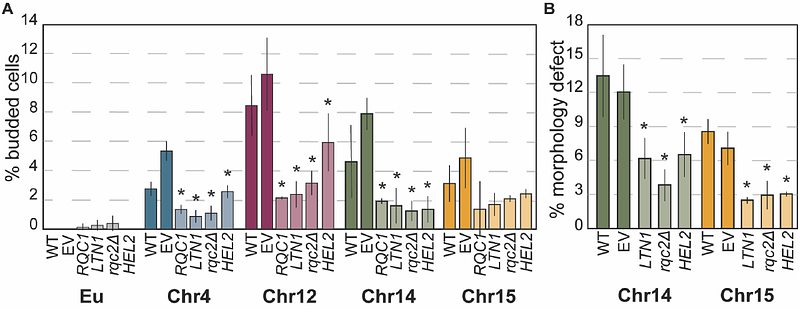Premature aging in aneuploid yeast is caused in part by aneuploidy-induced defects in Ribosome Quality Control

Premature aging in aneuploid yeast is caused in part by aneuploidy-induced defects in Ribosome Quality Control
Escalante, L. E.; Hose, J.; Howe, H.; Place, M.; Paulsen, N.; Gasch, A. P.
AbstractPremature aging is a hallmark of Down syndrome, caused by trisomy of human chromosome 21, but the reason is unclear and difficult to study in humans. We used an aneuploid model in wild yeast to show that chromosome amplification disrupts nutrient-induced cell-cycle arrest, quiescence entry, and healthy aging, across genetic backgrounds and amplified chromosomes. We discovered that these defects are due in part to aneuploidy-induced dysfunction in Ribosome Quality Control (RQC). Compared to euploids, aneuploids entering quiescence display aberrant ribosome profiles, accumulate RQC intermediates, and harbor an increased load of protein aggregates. Although they have normal proteasome capacity, aneuploids show signs of ubiquitin dysregulation, which impacts cyclin abundance to disrupt arrest. Remarkably, inducing ribosome stalling in euploids produces similar aberrations, while up-regulating limiting RQC subunits or proteins in ubiquitin metabolism alleviates many of the aneuploid defects. Our results provide implications for other aneuploidy disorders including Down syndrome.


